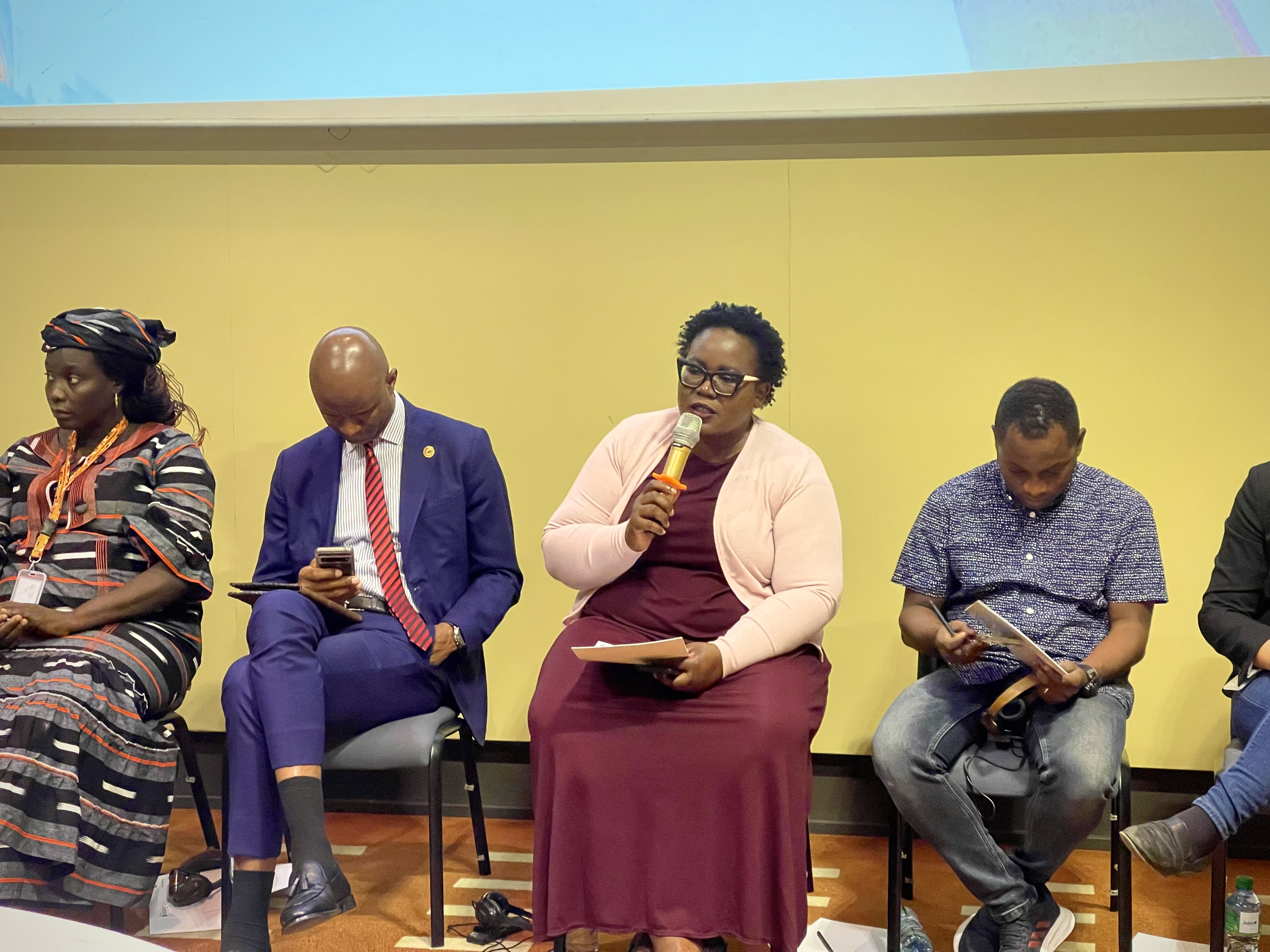
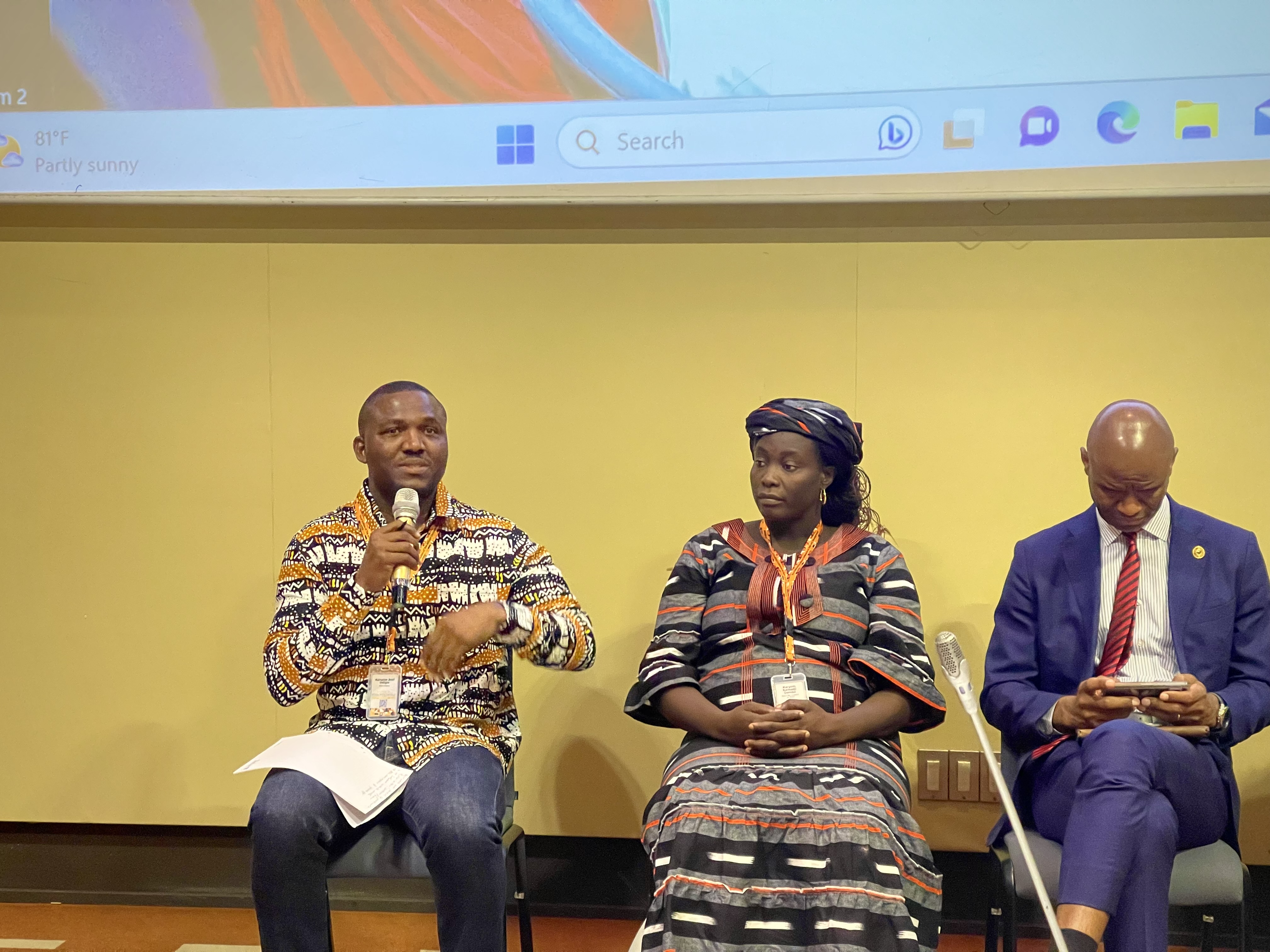
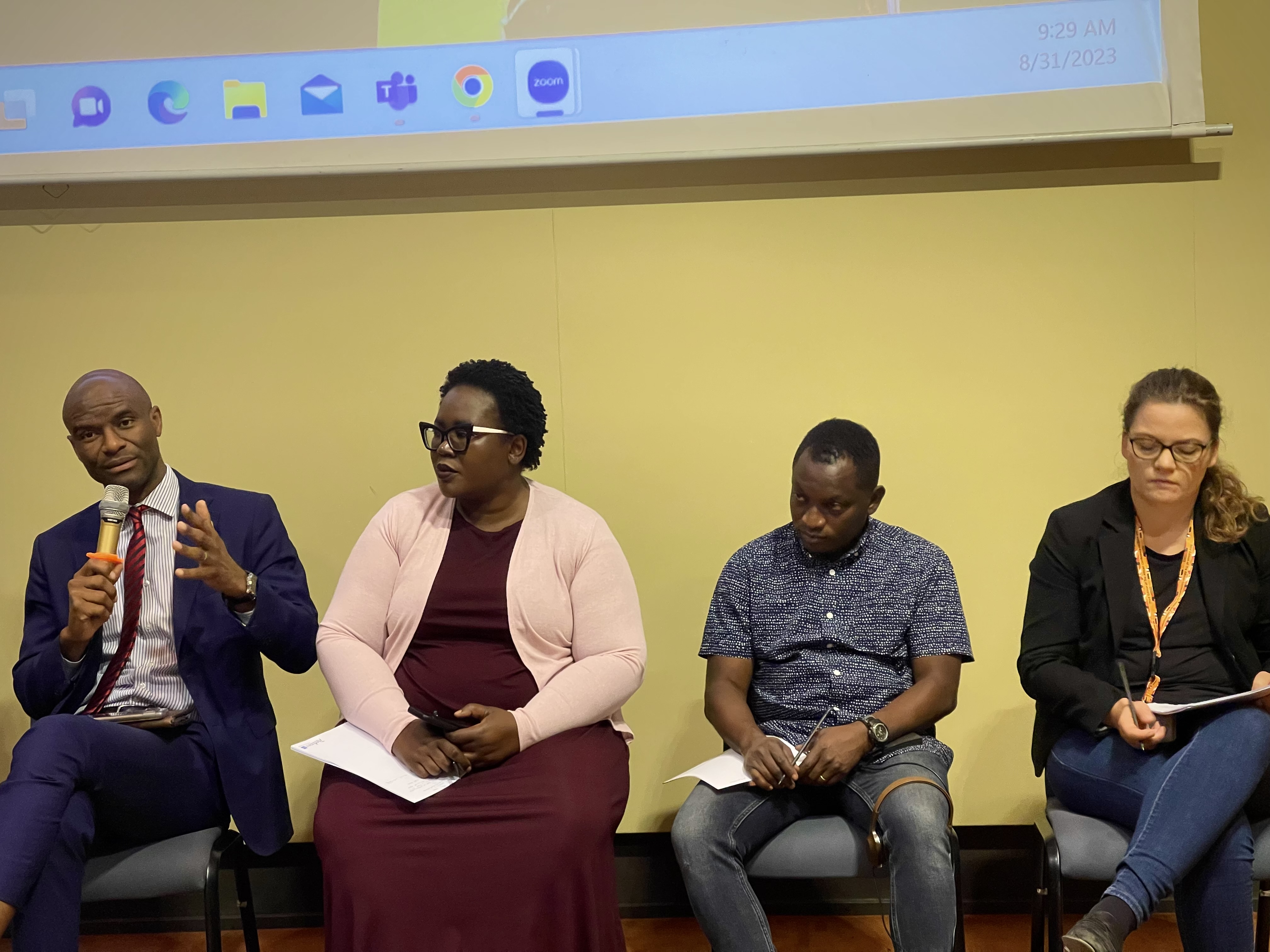
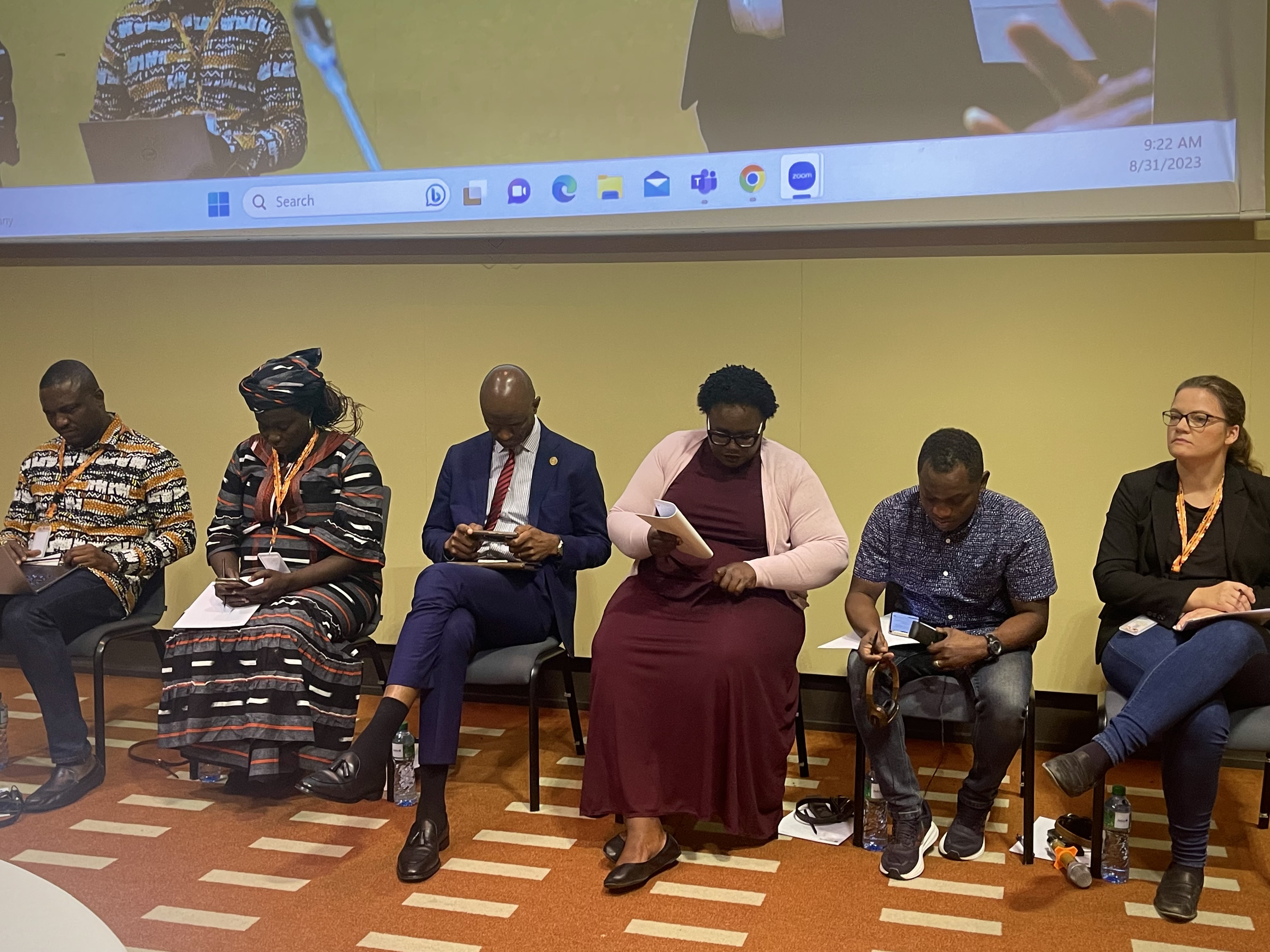
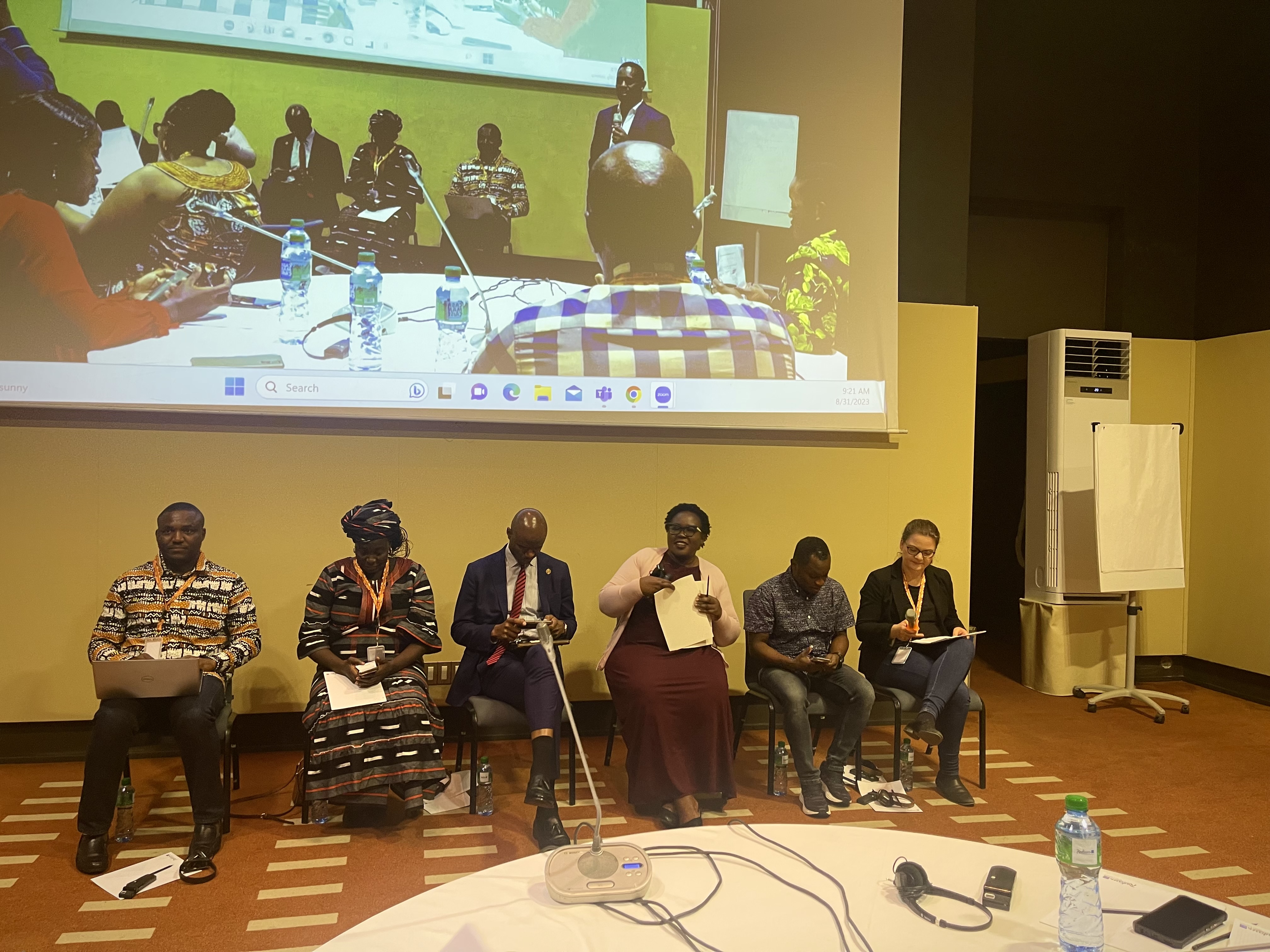
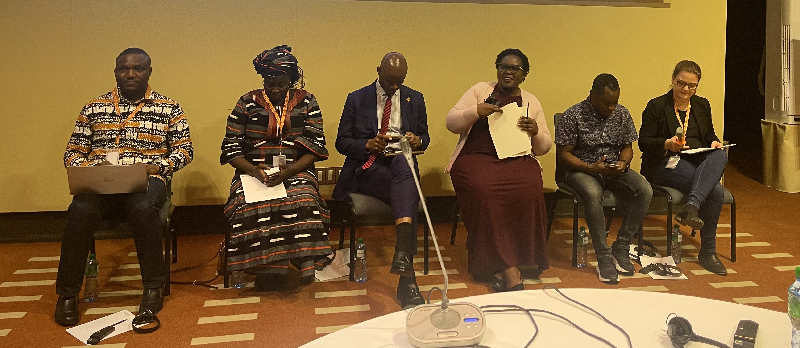
The third edition of the African Conference on Debt and Development (AfCoDD III) held from August 30th to September 1st, 2023, in Dakar, Senegal, was an important platform for addressing Africa’s debt challenges. On the sidelines of this major event, the Friedrich Ebert Stiftung AU office organized a Trade Union workshop on Sovereign Debt. This breakout session aimed to foster dialogue and collaboration among trade union leaders and other stakeholders to address the growing issue of debt vulnerability in Africa.
The session provided an occasion for dialogue among trade union leaders from countries facing the most significant challenges regarding debt vulnerability and gave an opportunity for the participants to share insights, strategies, and best practices in addressing the debt crisis. Such peer learning and knowledge exchange are invaluable in crafting effective solutions at the national, subregional and regional level.
The session was led by a panel of speakers, including a representative of the African Union, trade unions representatives from Tchad and Ghana, the General Secretary of the East African Trade Union Organization, a representative of a German civil society organization, and the Deputy General Secretary of ITUC-Africa. These panelists emphasized the paramount importance of trade union involvement in discussions related to debt and economic matters, particularly in defending the interests of African workers.
All the panelists stressed that trade unions play a central role in advocating for workers’ rights and interests when it comes to debt and economic policies. The impact of debt on the lives of ordinary citizens is profound, affecting access to education, healthcare, and overall well-being. As representatives of the workforce, trade unions are uniquely positioned to ensure that responsible debt management practices prioritize the welfare of the people.
To effectively represent workers’ interests in discussions on debt and economic issues, trade unions themselves must equippe themselves and theirs members with the necessary knowledge and skills to engage in informed and constructive dialogues with governments and other stakeholders.
Research is a critical tool for trade unions to understand the complexities of debt and economic policies and to propose evidence-based solutions that prioritize workers’ interests.
Furthermore, Strategic alliances with civil society organizations, regional bodies, and international institutions can amplify trade unions’ voices and influence. Collaborative efforts enable trade unions to advocate for policies that address debt vulnerability, promote social justice, and protect workers’ rights on a broader scale.
Moving forward, it is imperative that trade unions continue to engage with governments, civil society, and international organizations to advocate for responsible debt management practices. These practices should prioritize the welfare of African citizens, safeguard their rights, and ensure that resources are directed towards social development and economic growth.
